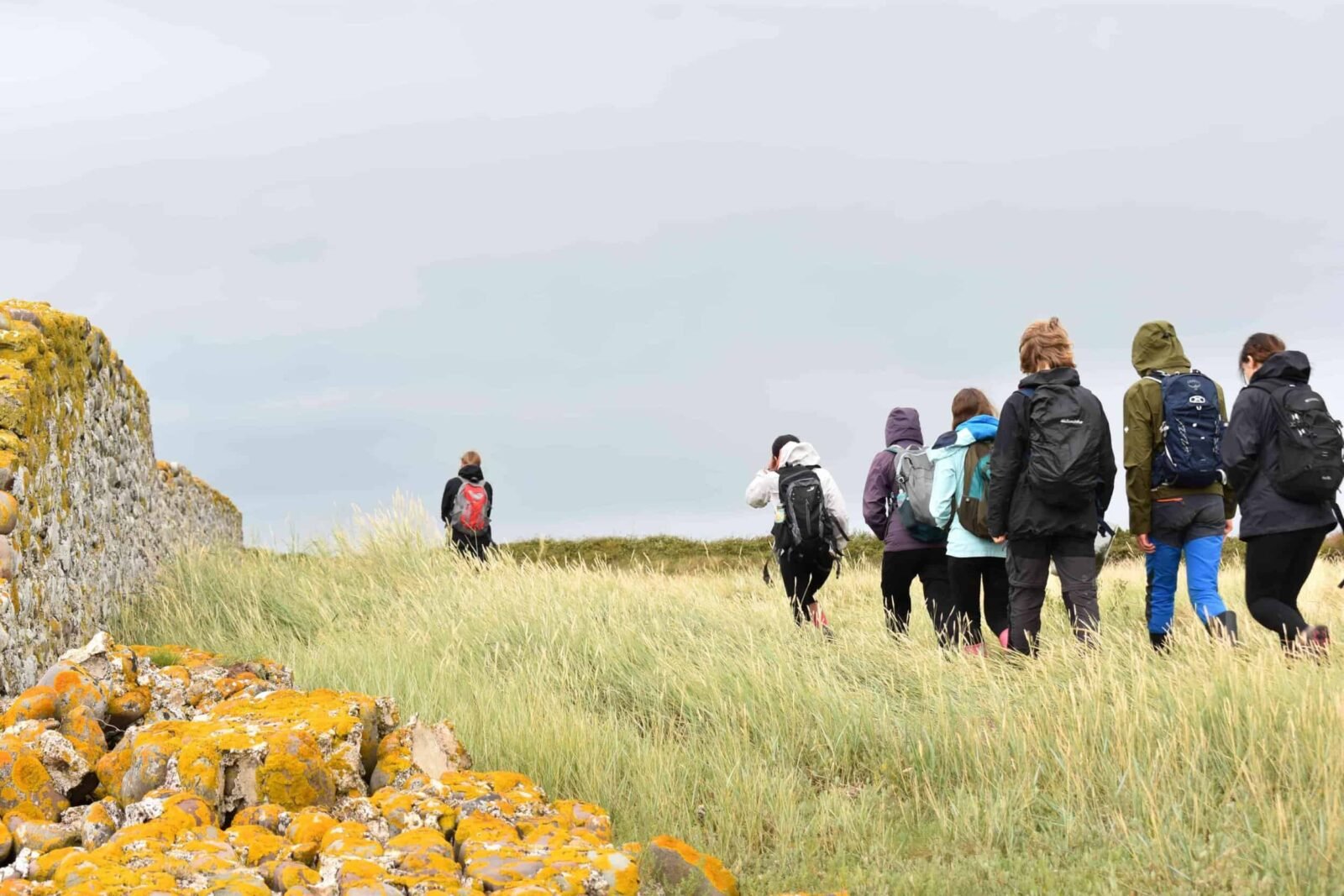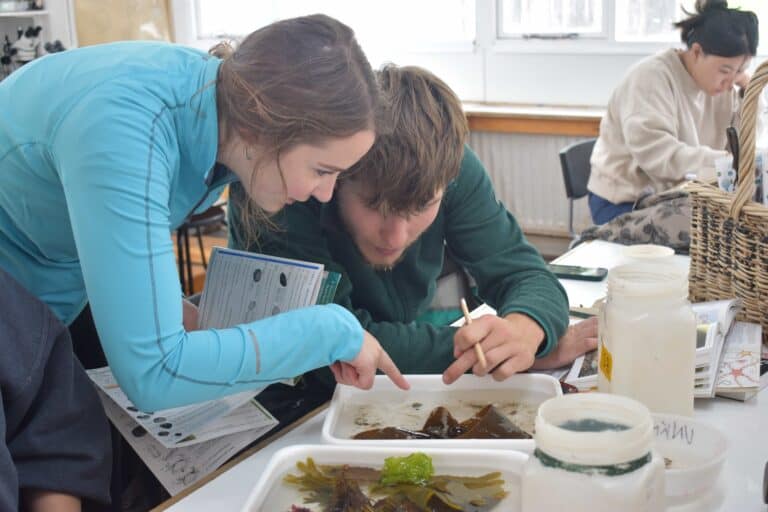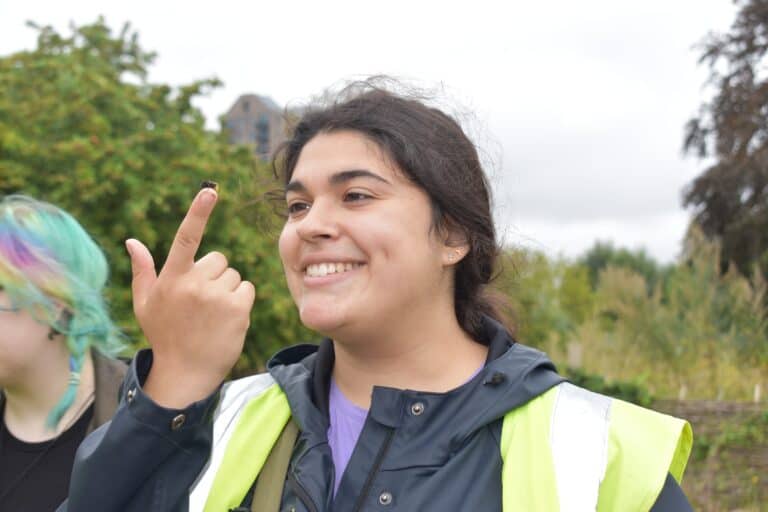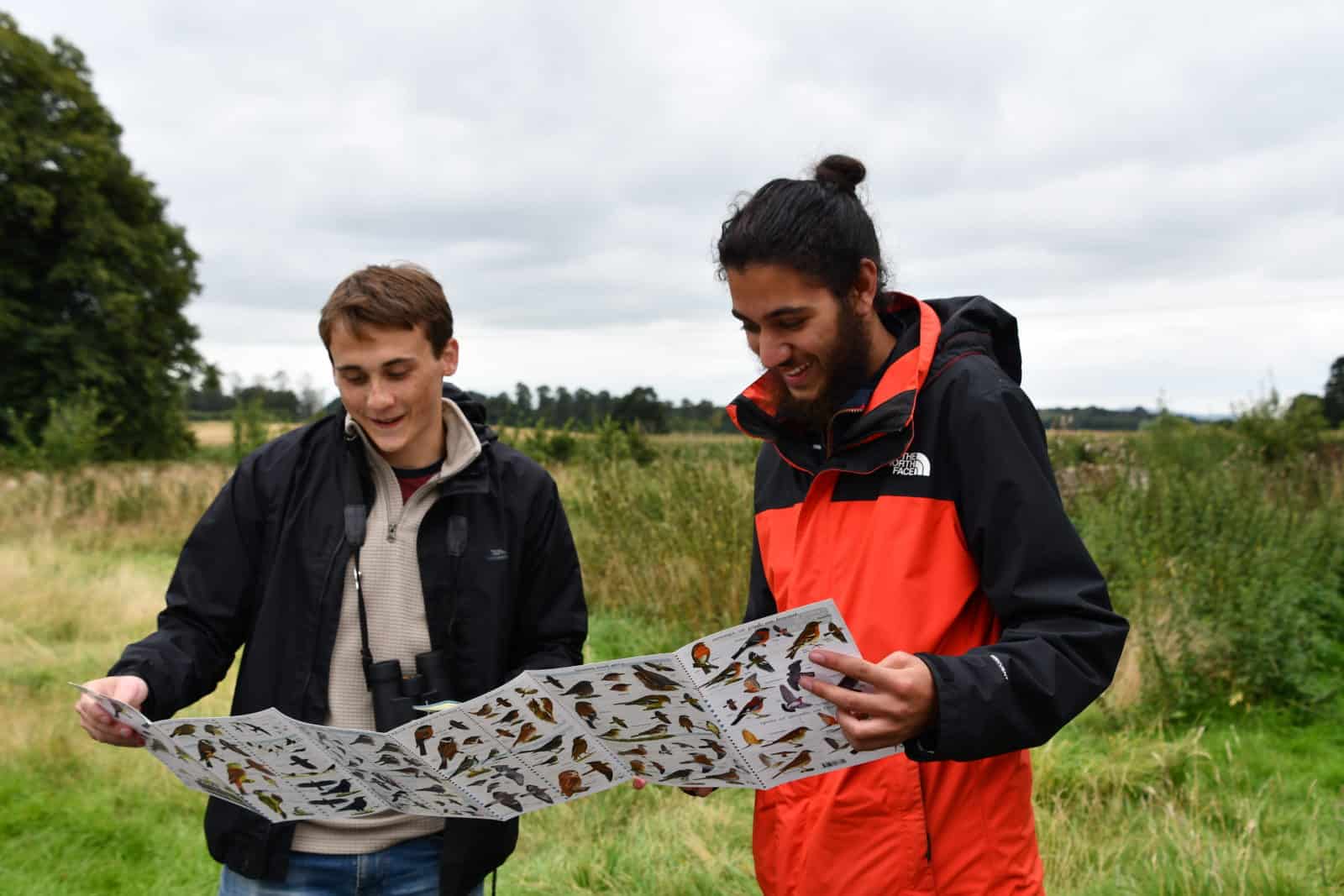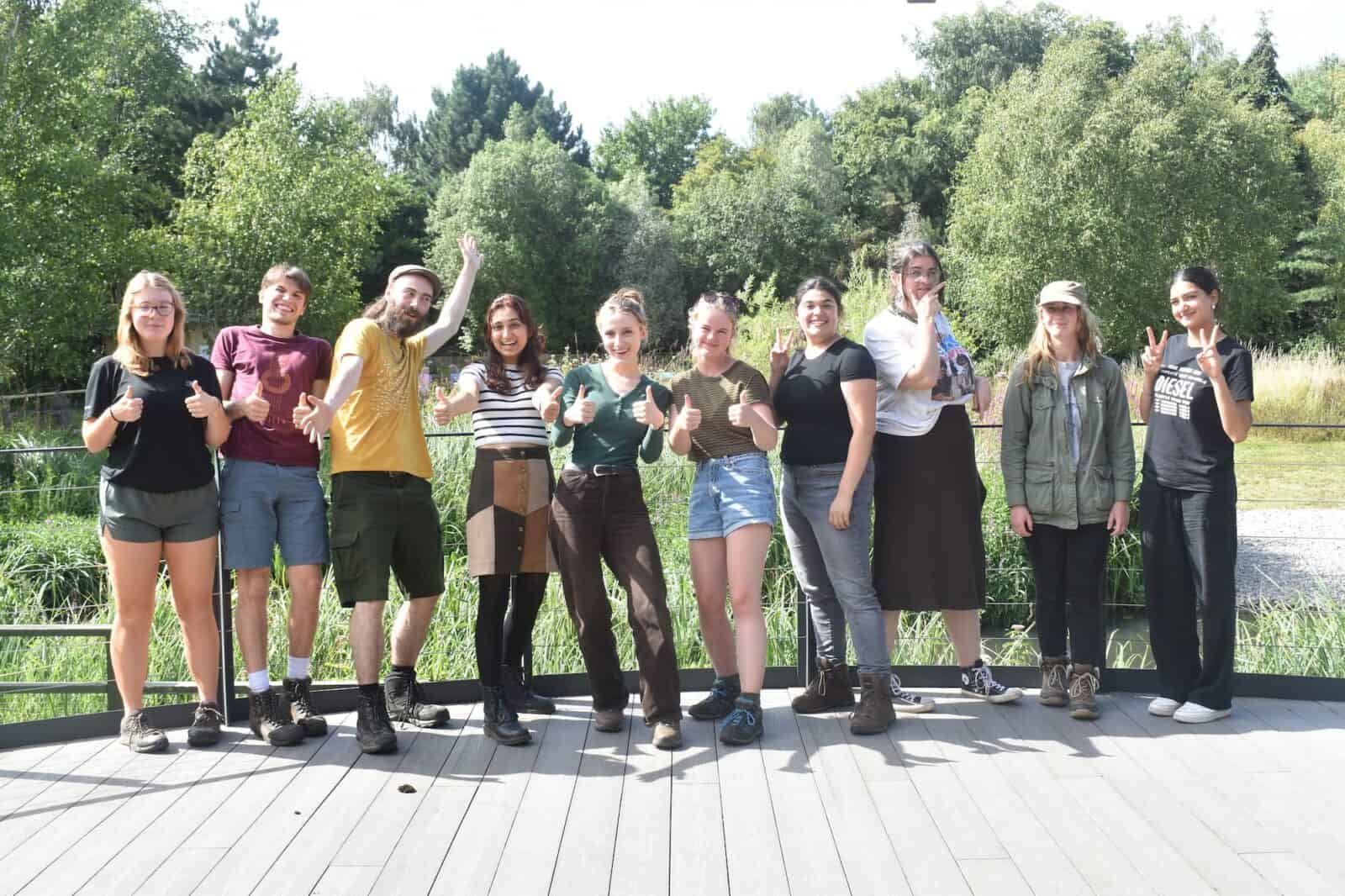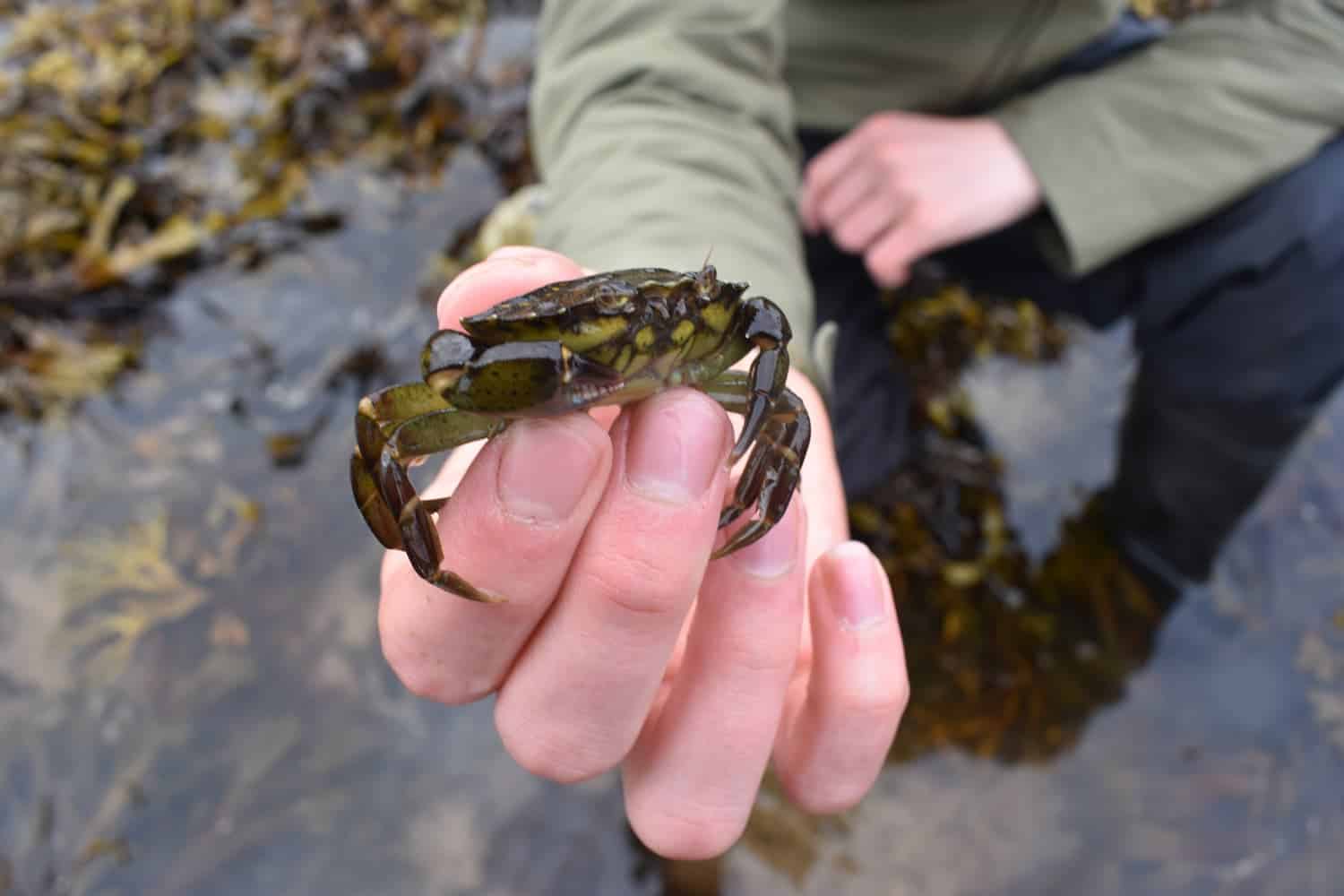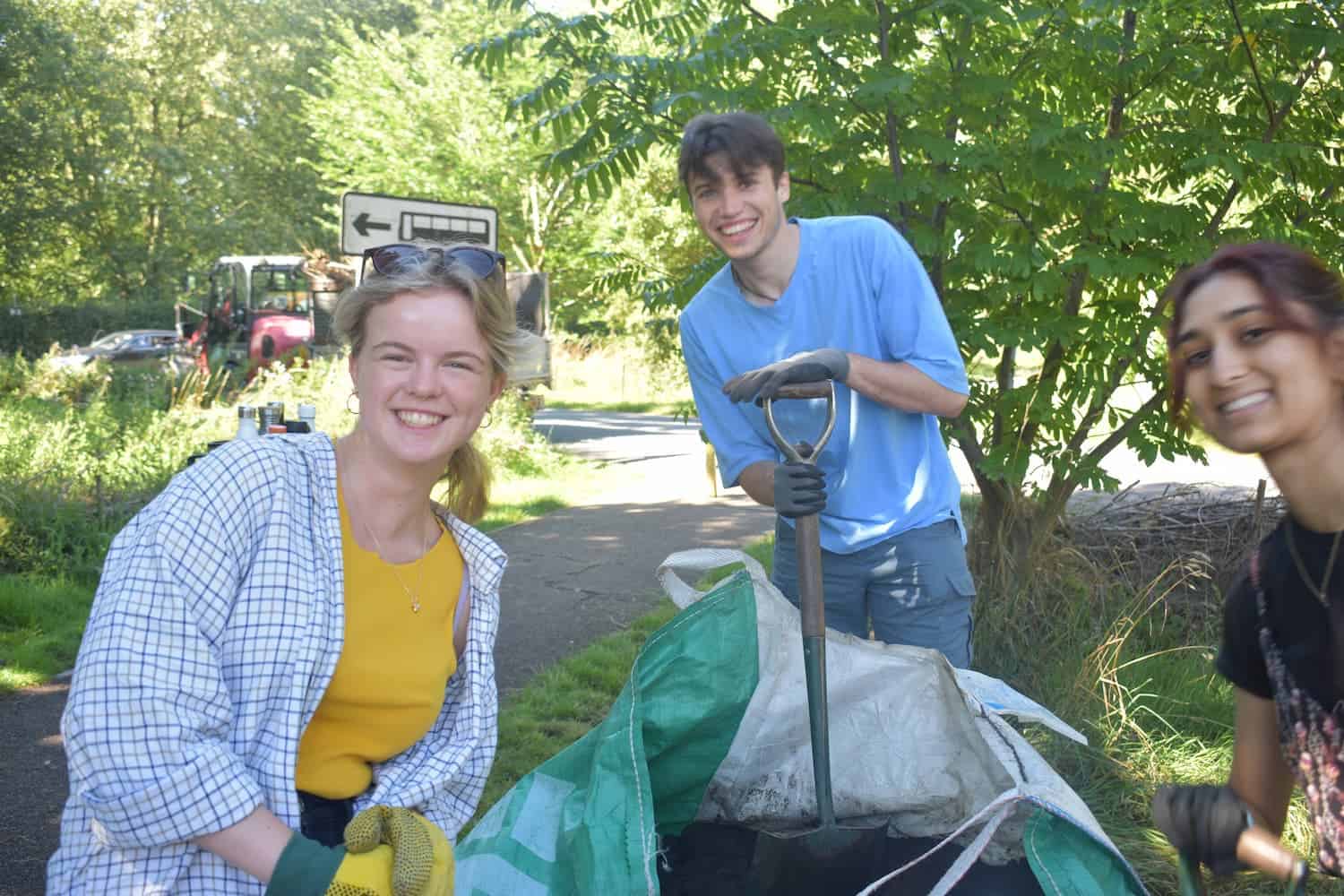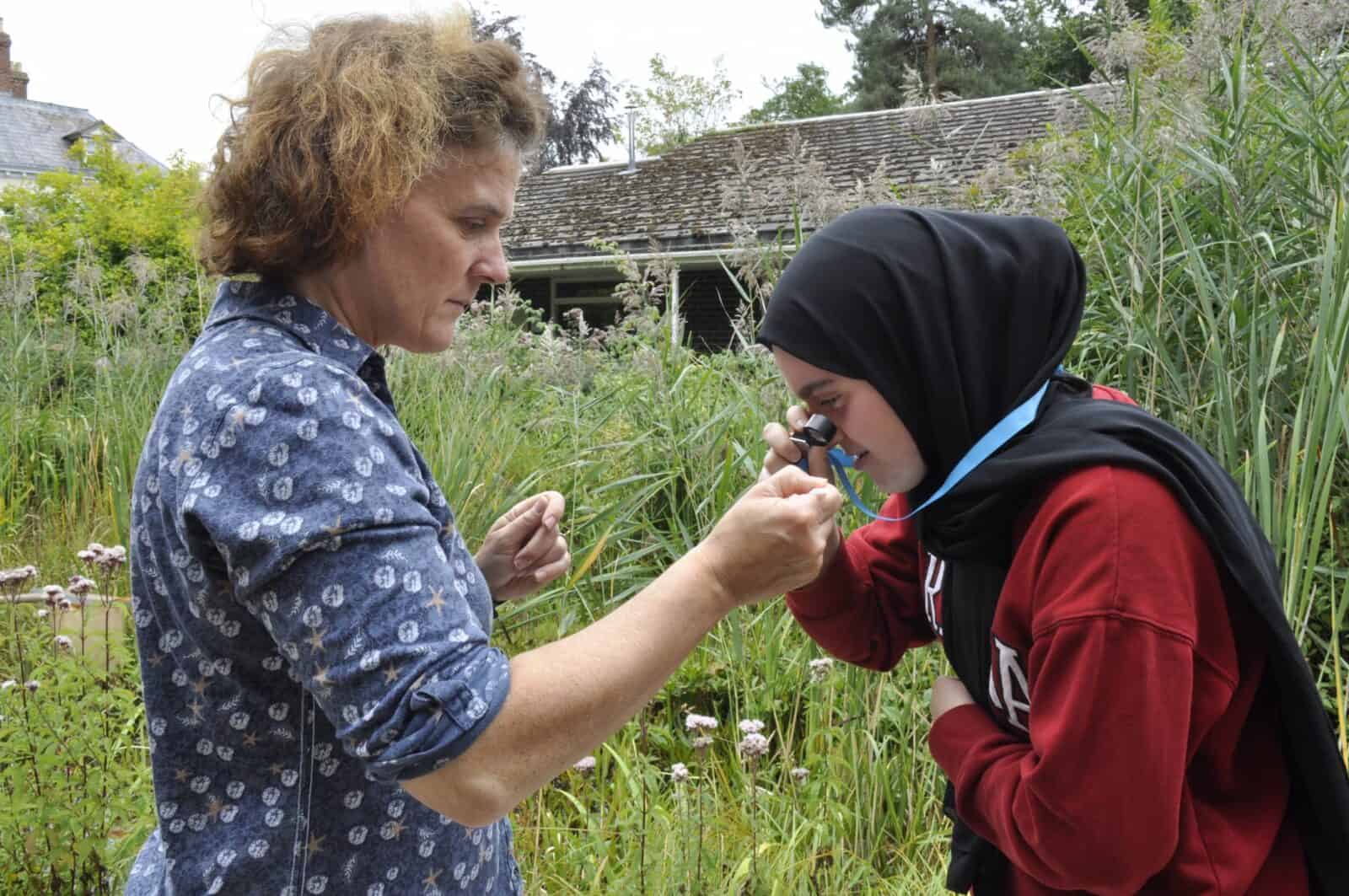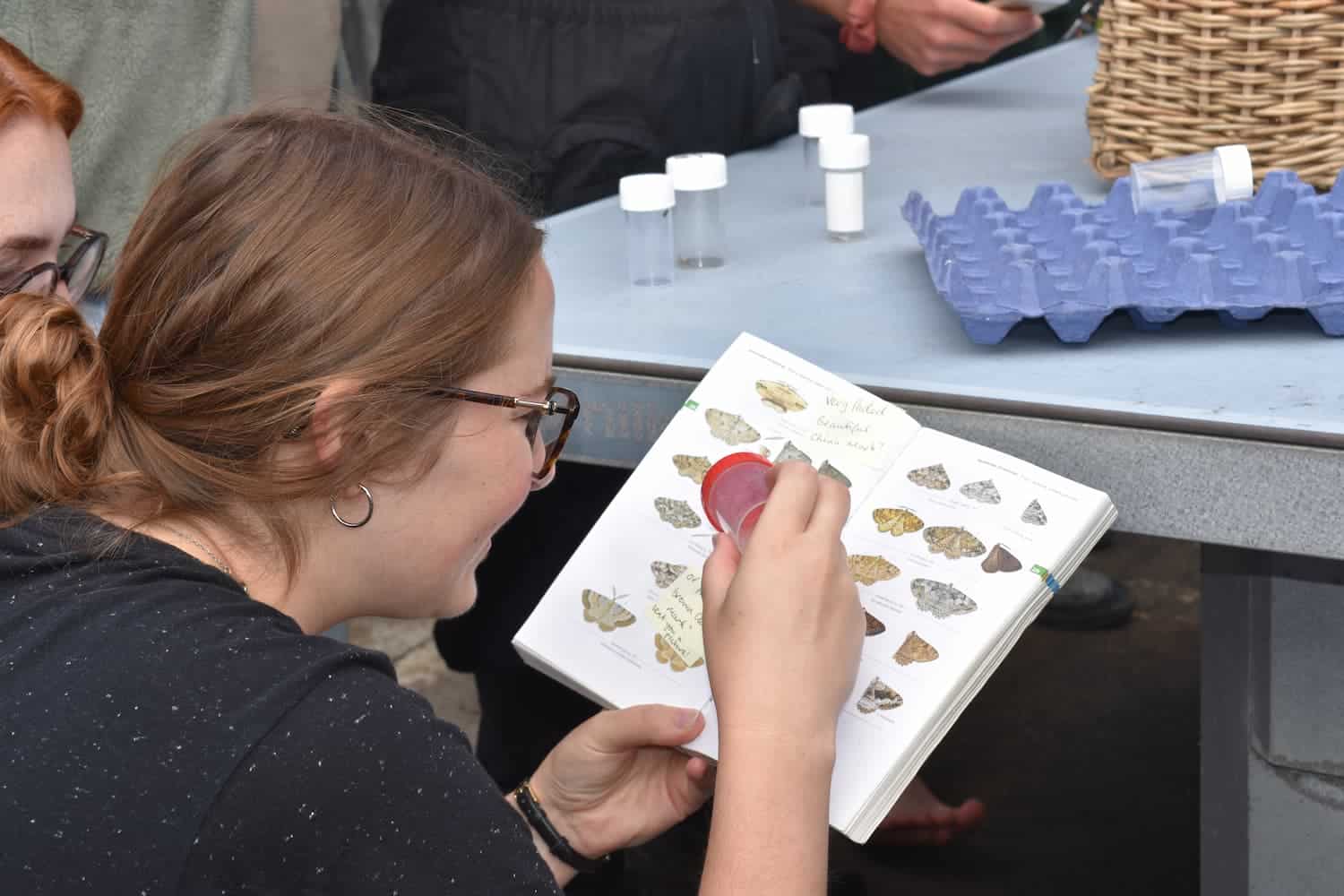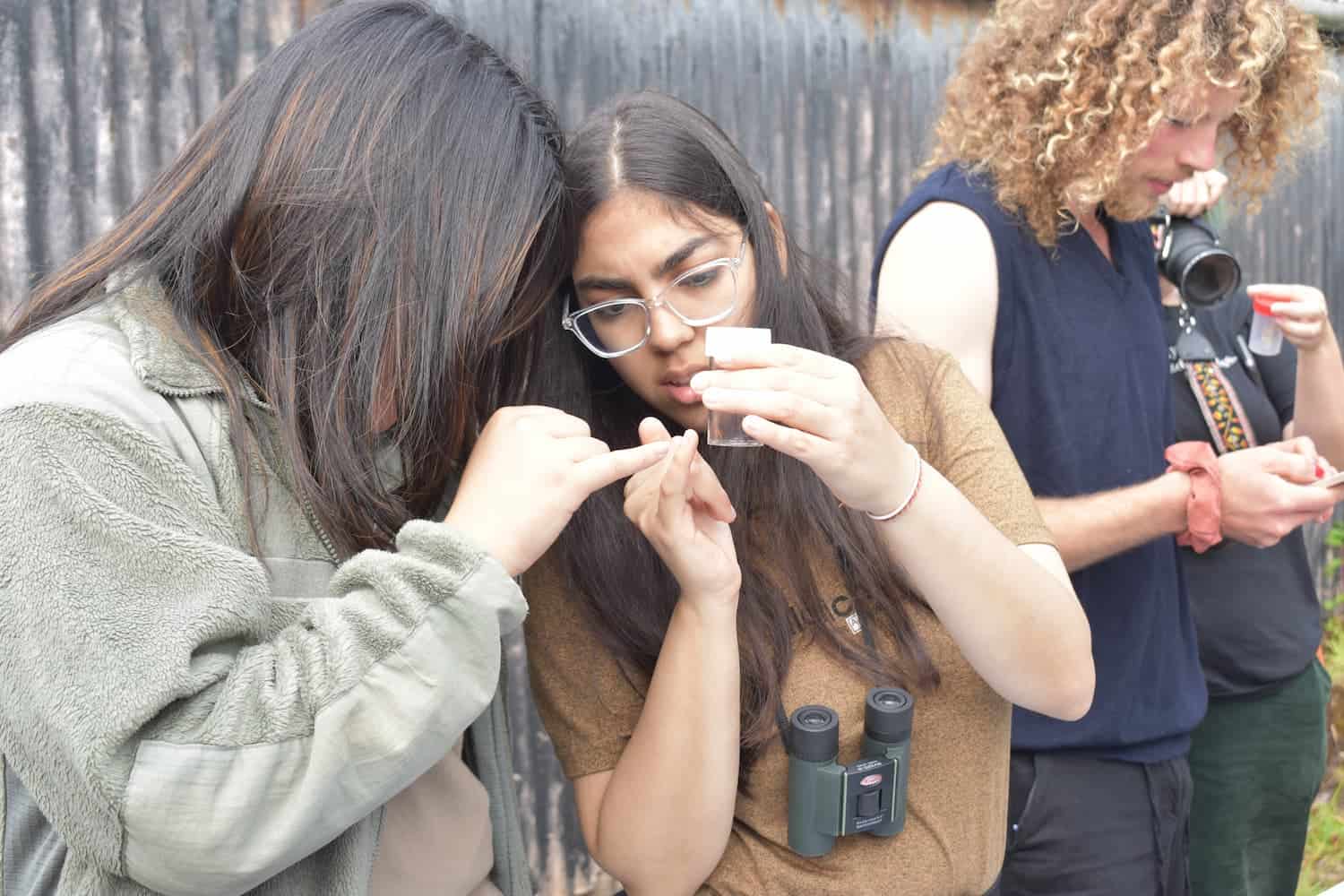Unique opportunity for 16–25-year-olds to apply for a 90% subsidised, Darwin-inspired scholarship, combining environmental education and ongoing support.
Applications are now open for 2024!
Applications will close at 9pm Sunday 12th May 2024
What is included in the scholarship?
The scholarship starts with a residential trip, or series of day trips, at locations across the UK, with each experience centring around time outdoors in environmentally engaging spaces. During these experiences, scholars will:
- Practice a wide range of field and identification skills in areas that have been selected for their variety of plants, trees and wildlife.
- Gain practical, observational and recording skills through a series of activities that help with wildlife and habitat conservation.
- Explore a range of landscapes and learn how these areas are managed and conserved.
- Meet inspirational speakers and experts from different backgrounds to discuss current environmental issues, offer advice, and answer any questions.
- Build your confidence while exploring the outdoors with like-minded people who share similar interests.
After the residential trip/day series, scholars will receive an exclusive support package, including:
- Dedicated staff member to advise and assist with your chosen environmental pathways.
- Access to our wide range of Natural History Courses at a heavily discounted rate. There are close to 200 courses covering 30+ subjects that run online and at locations across the country.
- Opportunities to meet and connect with other scholars at events and online webinars throughout the year, covering career and academic advice, current environmental topics and projects, and wider environmental themes.
Read More
What do you gain during the week away?
- Species survey and identification skills – All scholars should learn the skills to survey and identify a range of plants, trees, fungi or other vegetation, and/or a range of vertebrates and invertebrates.
- Habitat survey and monitoring skills – All scholars should experience a range of habitats, including protected areas, and understand how and why areas are managed. They should also understand the varied ways that habitat is monitored and surveyed and how this contributes to its protection.
- Transferable skill development – Scholars will have the opportunity to participate in a range of sessions to develop their transferable skills, such as communication and partnership.
- Knowledge and understanding – Scholars will have increased awareness and understanding of the natural world and the challenges it faces through a range of experiences, talks and workshops.
- Career guidance and advice – Scholars will interact with industry professionals who can help to inspire and nurture their interest in the natural world.
What are the on-going benefits of the scholarship?
- Discounts – Discounts on Field Studies Council natural history courses (1 in-person and 2 online). Free Field Studies Council identification guides.
- Events and webinars – Scholars will be invited to a range of events which could include webinars, courses, Young Darwin Scholar exclusive events or wider Field Studies Council events.
- Support – Scholars will receive the support and advice of the Learning Development Officer (LDO). Scholars will also receive regular updates from the LDO, through an email newsletter.
- Feedback – Young Darwin Scholars will have the opportunity to provide feedback to the Field Studies Council and shape the way our youth engagement looks.
Locations and dates:
Aged 16–17 Residential: Rhyd-y-Creuau, Betws-y-Coed, North Wales (05.08.24 – 09.08.24)
5 day residential, Monday to Friday
Cost to scholar: £90
Our Rhyd-y-Creuau residential provides a unique opportunity to meet like-minded individuals and develop new ecological skills and knowledge. With activities focusing on identification of local flora and fauna, habitat management and practical conservation, there is so much on offer with this exciting opportunity!
For those using public transport, a minibus will be arranged to collect and drop off scholars at the nearest train station (Betws-y-Coed) on the first and last day.
Aged 18–25 Residential: Slapton Ley, South Devon (15.07.24 – 19.07.24)
5 day residential, Monday to Friday
Cost to scholar: £90
This exciting residential will consider an array of marine and land-based topics. Whether looking at the amazing array of marine flora and fauna in South Devon or discovering the management of a National Nature Reserve, this residential will provide you with a new and exciting opportunity to meet like-minded individuals and learn new skills to assist you with an education or career in natural history.
For those using public transport, a minibus will be arranged to collect and drop off scholars at the nearest train station (Totnes) on the first and last day.
Aged 18–25 Day Series: Birmingham (29.07.24 – 02.08.24)
5 day, non-residential, Monday to Friday
Cost to scholar: £45
Working with a range of exciting organisations and looking at topics such as urban wildlife, tree health and native species recovery, our Birmingham day series will provide unique opportunities to meet industry experts, learn new field skills and connect with young people with similar interests.
Each day will be in a location that is accessible via personal and public transport. The group will meet at a designated point each day before commencing the activities.
For those using public transport, on certain days, a minibus will be arranged to collect and drop off scholars at a central Birmingham location
Aged 18–25 Day Series: London (12.08.24 – 16.08.24)
5 day, non-residential, Monday to Friday
Cost to scholar: £45
Working with a range of exciting organisations and looking at topics such as the identification of urban flora and fauna, habitat management and native species recovery, our London day series will provide excellent opportunities to meet industry experts, learn unique field skills and connect with young people with similar interests.
Each day activity will be in a location that is fully accessible via public transport. The group will meet at a designated point each day before commencing the activities.
Useful information to know before applying. Accessibility and support.
The residential cost includes food and accommodation.
The content between the residential and day series is similar, with the main difference being no overnight stay.
We welcome all young people regardless of their backgrounds or experiences. You do not need a degree or any qualifications to be a scholar. All we ask is that you have an interest in nature and are open to learning new environmental skills and discovering more about the pathways you can follow while being part of a group of like-minded people.
The scholarships aim to curate an open and inclusive space. We are committed to ensuring everybody feels welcome and can make a number of adjustments to enable this. This includes, but is not limited to:
- Offering a choice of meals to accommodate dietary or religious meal requirements
- Options to have a private room
- Open discussions about reasonable adjustments to support your learning
- Judgement free support
- Bursaries to support travel and attendance
If you have any support needs or any other questions about accessibility or criteria that you want to discuss before applying for the scholarship, then please get in touch.
If the cost of travelling to the course or the 10% contribution is stopping you from applying, please do talk to us. We are able to provide funding to support those most in need to broaden the accessibility of the scholarship. Requests for financial support will be dealt with on a case-by-case basis. We understand this is sensitive information, and no financial information will be shared with other scholars.
Email: [email protected]
Application Process
The application process is an online form which includes four main questions:
- Tell us a bit about yourself (Max 300 words)
Ideas for answers: We want to learn a bit more about you! What are you interested in? Do you have any hobbies? What do you enjoy doing in your spare time? What are you working on at the moment? Remember, you don’t need any previous experience or skills to attend – we just want to know more about who you are! - Tell us about a nature-based topic that you are passionate or curious about. (Max 300 words)
Ideas for answers: We want to understand more about your interests in the natural world. What sparks your curiosity in nature and what would you like to learn more about? This topic could be anything such as a species, event, habitat or theme. What is it about this topic that interests you, what has inspired this interest, where did it come from, and why is it important to you? - Why do you want to attend the Young Darwin Scholarship? If you were awarded a scholarship, how would this impact your future? (Max 300 words)
Ideas for answers: What do you hope to gain and learn as a Young Darwin Scholar? How can the scholarship benefit you? What is it about this programme that sounds good? How would you like to be supported while being a Young Darwin Scholar? What are your aspirations for the next few years and how to do these link to your environmental interests? Are you hoping to learn more for personal interests? Are you considering an environmental career or educational course? - Imagine it is 10 years in the future, and you’ve just heard an announcement that nature has recovered, and people and the planet are thriving together. What would you feel upon hearing this news and how will the place that you live have changed because of this? (Max 300 words)
Ideas for answers: How does the news make you feel? What steps do you think have been taken to get to that point? What does this mean for people and communities? What does this mean for the planet? How will where you live be impacted by this news?
This application form will take between 20 and 30 minutes to complete. It can be useful to write your thoughts down in a Word or Google document first and then copy and paste them into our application form.
If a written form is a barrier to you applying, please email [email protected] and we will arrange an alternative application method. This is usually in the form of arranging a telephone or online call so we can speak about your responses. We can also facilitate audio-recorded applications.
We will use the answers given to the questions to make our decision so that applicants will not be required to do a follow-up interview or task. All applications will be scored by the Field Studies Council team and the Youth Council.
Applications must be submitted by 9pm on Sunday 12th May 2024. All applicants will be contacted by Sunday 2nd June, regardless of the outcome of their application. If you are successful, you will be sent a booking link and will have 1 week to book your place. (We ask everybody to please ensure they check their junk or spam inboxes regularly, as quite often our emails are sent there).
To keep up to date with all of our opportunities for young people (16-25), sign up for our Youth Mailing List. This mailing list gets first access to offers, discounts and opportunities.
If you have any questions regarding your application or the scholarship, please email:
[email protected]

